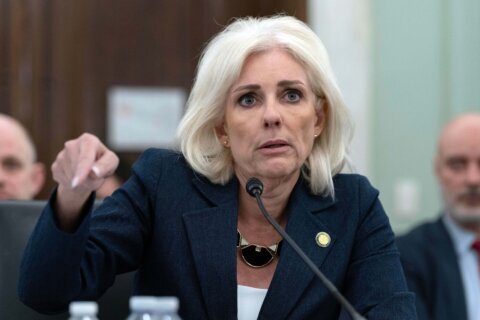ARLINGTON, Va. — Virginia is moving toward expanding the use of police body cameras but significant questions remain about how police and citizens would use the tool.
A statewide panel tasked with making legislative recommendations about such surveillance technologies came to a consensus to expand the use of body cameras to record interactions between officers and the public during its very first meeting. But there are a “number of complications,” says Secretary of Public Safety Brian Moran.
“I think it protects the public as well as the law enforcement officer, so there’s general consensus. Now, we have to wrestle with the policies — when do you turn the camera off, when do you turn it on, what are personal privacy interests for bystanders and even the individuals involved in an incident. And then how long does the officer and the police department agency keep the data … not to mention the cost,” Moran says.
Moran says much of the “tremendous” expense comes from storing and reviewing the video footage recorded by the cameras.
The panel he is leading expects to have recommendations on body cameras, license plate readers and drones by the fall so that those suggestions could be used to shape legislation in next year’s General Assembly session. The panel includes police, local government officials and representatives of minority advocacy groups.
“Technology presents a lot of benefits to public safety. But also we need to balance those with personal privacy rights. And so, that’ll be a perennial issue,” Moran says.
Gov. Terry McAuliffe vetoed bills last month that would have placed tighter limits on surveillance technologies like license plate readers, which police use to track cars’ locations. However, he signed a bill requiring law enforcement agencies to have a warrant for drone use, except in emergencies or with consent.







